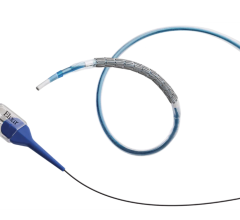October 17, 2007 — The first trial to test whether medicated, drug-eluting (dispensing), stents can benefit patients who suffer from peripheral arterial disease (PAD) is taking place at Montefiore Medical Center, one of only 80 sites around the world joining in the study.
Medicated, drug-coated stents have been used with great success for the past several years in treating coronary artery disease.
PAD affects more than 10 million Americans, according to the Peripheral Arterial Disease (P.A.D.) Coalition. The disease restricts circulation in blood vessels that lead from the heart to other areas of the body, such as the legs and feet. Often undiagnosed, PAD results in pain when walking and can lead to gangrene and amputation. It also may signal an increased risk for coronary arterial disease and other related circulatory conditions.
"This is an exciting trial since it is the first evaluation of a drug-eluting stent in blood vessels outside the heart," said Evan Lipsitz, M.D., chief of Vascular Surgery at Montefiore and principal investigator of the study. "Combining a stent designed to hold blood vessels open to allow blood to flow freely through the vessel, with a medication used to prevent renarrowing, may reduce the development of scar tissue, the primary cause of the stent failure, in the months following balloon angioplasty in leg arteries. This helps eliminate the need for more invasive treatment, such as bypass surgery,” Dr. Lipsitz said.
The stent is coated with paclitaxel. The trial is designed to determine the safety and effectiveness of the Zilver PTXTM drug-eluting stent in treating blockages in the femoropoliteal artery, the major artery in the thigh.
For more information: www.montefiore.org


 July 02, 2024
July 02, 2024 









